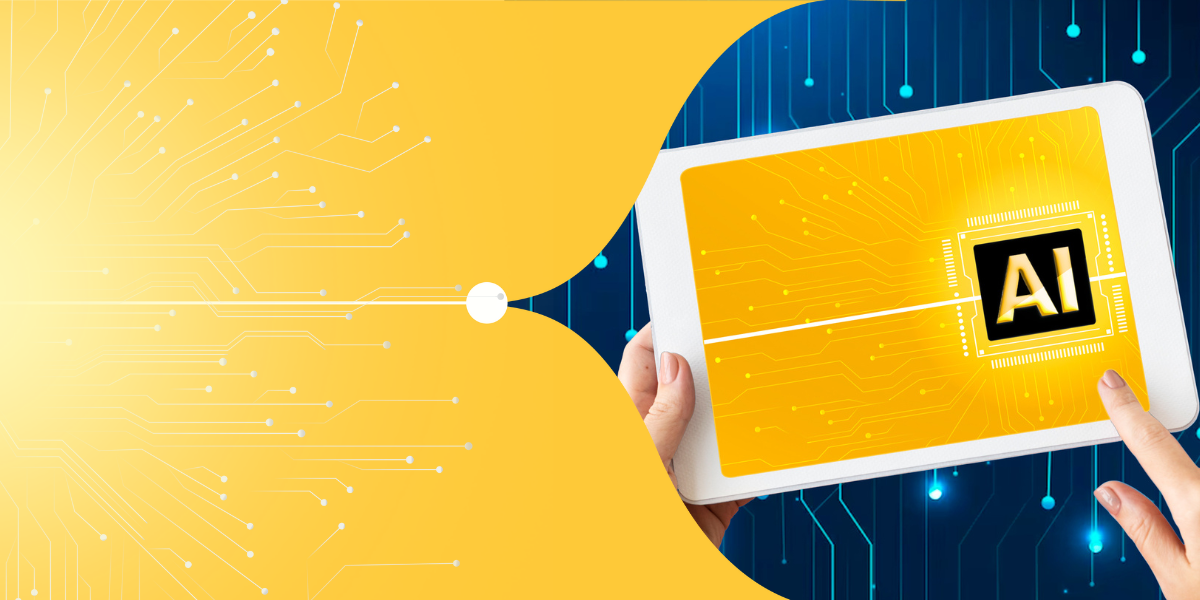AI: Learn to use tools of the future today
The biggest revolution in the past few years involves the widespread adoption of AI or artificial intelligence. Businesses look at it as a way to make a lot of work easier or more productive. Meanwhile, people also use AI tools to express themselves like never before, using instructions called prompts to direct machines to create media or entire libraries of brainstorming material. AI will become more of a mainstay in the workplace as it changes the skills we value.
OpenAI, one of the top AI labs experimenting with these new tools and use cases, has already helped people discover how prompts change the way AI responds to different tasks. ASU’s new partnership with them aims to maximize that impact, especially by using their most popular tool, ChatGPT, an advanced AI model that does this with natural language processing. In other words, it works by interpreting and generating language within a simple text chat, forever altering the way we think about how information is used in different processes. That’s where the future is going, and businesses are moving into that new state faster than you’d think.
With knowledge of AI tools, you can prepare yourself for the future workforce a lot sooner — avoiding the initial shock of that change as it becomes a regular part of everyday life.
So, what is artificial intelligence?
In basic terms, AI is a machine that performs like a human mind. Any tool or system programmed to think, learn or solve problems in the complex way we do can be called AI.
When you think about it that way, AI technology has been developing for a while.
If you’ve used social media, you’ll already know what algorithms are. They’re formulas — procedures for problem-solving that often look for patterns, helping certain AI tools learn from tons of data. That process is known as machine learning, and it’s just one of the ways AI has begun to change the way we work and play. It’s a very human skill to learn or look for patterns, but now, we’ve trained computers to do the same.
That change is all around us, making it more important to develop skills relevant to AI. To use them well, we need to learn what AI systems do, what ethical use looks like and how to tell them what we need at the moment.
See the benefits of learning AI skills
Because AI helps solve complex problems, companies already need professionals with AI skills in sectors like technology, healthcare, finance and manufacturing. As business evolves to include AI-led solutions, companies will want to keep up with competitors using the same tools. Learning skills in AI-related technologies, machine learning, data analysis and programming languages will help you stand out on the market.
But learning these skills doesn’t just help give companies a competitive edge. It’s not limited to providing new business and career opportunities. These skills can make you more familiar with other technologies that have become more prevalent, such as Python, a very accessible and popular coding language with uses like data analysis or machine task automation.
On top of all that, you’re looking at a set of tools that equips people with:
- Ways to innovate and solve complex issues.
- Boosts to their productivity in repeatable tasks.
- Creative avenues for self-expression.
We have already seen chatbots supporting customers with AI-powered conversations and digital assistants scheduling and summarizing meetings. But real-life uses for AI are everywhere, from automating email responses and social media to translating languages and personalizing content recommendations.
With AI skills, the hard parts of any personal project — like brainstorming to get past a creative block — can suddenly feel like smaller hurdles. The rote, repeatable tasks at work like note-taking can be left to a machine while you focus on engaging with teammates or thinking deeply about the ways you do your work.
From collaborative writing to automating finance management, from data analysis to smart calendars, AI is changing the way we do things in personal and professional life. The pace differs across countries and regions, but AI integration is an inevitable next step. That means that you should look at how you do things now — and how AI might change your work and home life.
Get started with AI
Artificial intelligence is a big bucket, with a lot of tools in it. But you should start somewhere, so why not start with generative AI like ChatGPT?
You don't need to be a computer wizard to start. There are courses designed for beginners that introduce you to the basics of talking to these machines using Python. The AI Foundations: Scripting ChatGPT with Python course teaches you how to use Python to interact with the ChatGPT to create and retrieve specific information as you need it for different processes. This short, practical course crafted by expertise at Arizona State University, offers hands-on experience in Python scripting, ethical AI use, and integrating document contents into AI queries. In just 2 hours, you can begin your path to becoming proficient in AI. Best of all, you only need a computer, an internet connection, and a free ChatGPT account to get started.

Questions about AI?
Artificial intelligence is an emerging field of technology with plenty of buzzwords and industry terms that you might want to know more about. Have a look at the list we created of the most common and most frustrating terms people face when learning more about AI:
- Artificial intelligence (AI): the simulation of human intelligence in machines that are programmed to think and learn like humans, exhibiting traits associated with a human mind like learning and problem-solving.
- Machine learning (ML): the subfield of AI that focuses on systems learning from data.
- Large language model (LLM): a type of artificial intelligence that has been trained on vast amounts of text to understand and generate human-like language, enabling it to answer questions, write text, and even hold conversations.
- Deep learning: a subset of machine learning that involves neural networks with multiple layers, enabling complex pattern recognition.
- Neural networks: computing systems inspired by the structure and functioning of the human brain, often used in deep learning.
- Natural language processing (NLP): AI’s ability to understand, interpret, and generate human language.
- Computer vision: AI’s capacity to interpret visual information from the world, often used in image and video analysis.
- Chatbots: AI-powered programs designed to simulate conversation with human users.
- Big data: the management and analysis of large and complex datasets to derive insights.
- Algorithm: a step-by-step procedure or formula for solving a problem, often associated with machine learning algorithms.
- Predictive analytics: using data, statistical algorithms, and machine learning techniques to identify the likelihood of future outcomes.
- Autonomous systems: AI systems capable of performing tasks without human intervention.
- Robotic process automation (RPA): using robots or “bots” to automate repetitive tasks traditionally carried out by humans.
- Explainable AI (XAI): ensuring that AI models and their decisions can be easily understood and interpreted by humans.
- Edge computing: processing data closer to the source of generation rather than relying on centralized cloud servers.
- AI ethics: the ethical considerations and guidelines surrounding the development and use of AI systems.
- Generative adversarial network (GAN): a class of machine learning systems where two neural networks, a generator and a discriminator, compete to create realistic outputs.
More questions about Scripting ChatGPT with Python?
With this introductory course, there are a few things worth knowing about. Some frequently asked questions include the following, which we’ve answered to make your journey easier:
- What’s the prerequisite knowledge for the AI Foundations course?
No prior knowledge is required, making it perfect for beginners. - Is Python the only programming language covered?
Yes, the course focuses on Python due to its prominence in AI development. - How is the course structured?
It’s self-paced with a blend of theory and hands-on projects. - Will I get a certificate upon completion?
Yes, you’ll receive a credential that can bolster your professional profile. - Can the skills be applied to specific job roles?
Absolutely, the skills are versatile and applicable across various industries.
Take the next step on your AI learning journey!
Learning to use Python and ChatGPT will help you harness the potential of AI in various situations, such as managing your schedule, automating research or analyzing data. Get started as part of the AI-powered workforce by starting with the basics. With these new skills, you can start to navigate the new wave of AI integration into the world around you. Scripting ChatGPT with Python can help you unlock that potential in your professional and personal life. Don’t wait to get started; AI skills are the future, and the future is already here.






